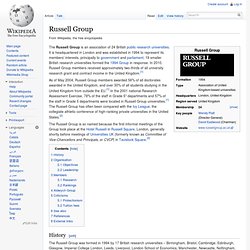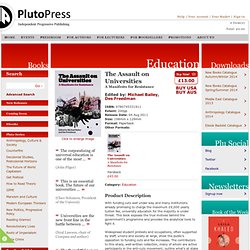

HERO - Higher Education and Research Opportunities in the UK. The web site you are accessing has experienced an unexpected error. Please contact the website administrator. The following information is meant for the website developer for debugging purposes. Error Occurred While Processing Request Resources: Browser Mozilla/5.0 (X11; U; Linux i686; en-US; rv:1.9.2.10) Gecko/20100914 Firefox/3.6.10 Remote Address Referrer Date/Time 14-Jan-12 07:39 PM Stack Trace. Home - The Department for Education. Building Schools for the Future. Gilbrook College, Middlesbrough, constructed under the BSF programme.

In 2007 the programme was complemented by the announcement of a Primary Capital Programme, with £1.9 billion to spend on 675 building projects for primary schools in England over three years.[3] On 5 July 2010 the Secretary of State for Education, Michael Gove, announced that following a review, the Building Schools for the Future programme was to be scrapped. BSF projects which had not achieved the status of 'financial close' would not proceed, meaning that 715 school revamps already signed up to the scheme would not go ahead. He also announced that a further 123 academy schemes were to be reviewed on a case-by-case basis.[4] Management[edit] The BSF programme had historically been dogged by sporadic or no management at the top, with Richard Bowker (Chair and Chief Executive of the Strategic Rail Authority) abandoning his post just eight months into the role.
Funding and budgets[edit] Primary education[edit] Education.Gov.Uk (educationgovuk) Students at the Heart of the System. Introduction This White Paper sets out our proposals for a higher education sector which is sustainably funded; delivers a better student experience; and contributes fully to the efforts to increase social mobility.

The purpose of this consultation is to receive feedback on this overall package of proposals for reforming higher education in England. We welcome input from anyone with an interest in our proposals. Students March to the City on November 9. Russell Group: Home. Russell Group. The Russell Group is an association of 24 British public research universities.

It is headquartered in London and was established in 1994 to represent its members' interests, principally to government and parliament; 19 smaller British research universities formed the 1994 Group in response. In 2010, Russell Group members received approximately two-thirds of all university research grant and contract income in the United Kingdom.[1] Million+ Million+ (million_plus) National Foundation for Educational Research. The NFER (TheNFER) NCGE - National Council for Graduate Entrepreneurship. (pdf)enterprise & entrepreneurship_in_higher_education.1. HEFCE : About us. HEFCE distributes public money for higher education to universities and colleges in England, and ensures that this money is used to deliver the greatest benefit to students and the wider public. Our core values are openness, impartiality, fairness and objectivity.
And in everything we do, we strive to safeguard the collective interests of students. This includes monitoring that universities and colleges are financially healthy, that their courses are good quality, and that everyone with the potential to enter higher education has a fair chance to do so. We do not provide grants or loans to individual students, but a list of organisations that provide individual student support is available. More details of our roles and responsibilities are below. Pluto Press - The Assault on Universities. With funding cuts well under way and many institutions already promising to charge the maximum £9,000 yearly tuition fee, university education for the majority is under threat.

This book exposes the true motives behind the government's programme and provides the analytical tools to fight it. Widespread student protests and occupations, often supported by staff, unions and society at large, show the public's opposition to funding cuts and fee increases. The contributors to this sharp, well-written collection, many of whom are active participants in the anti-cuts movement, outline what's at stake and why it matters. They argue that university education is becoming increasingly skewed towards vocational degrees, which devalues the arts and social sciences – subjects that allow creativity and political inquiry to flourish. Michael Bailey is Lecturer in Sociology at the University of Essex. Is also available in ebook format from a number of retailers. INTRODUCTION1. Notes on contributorsIndex. Scioenceguide: Brits hoger onderwijs verdeeld over nieuwe graden. 8 juli 2011 - Britse universiteiten willen hun cijferlijsten en graderingen aanpassen aan de USA.

De eigen traditie zit hen in de weg, vinden zij, Oxford en Cambridge voelen daar echter niets voor. Wat betekent dit meningsverschil voor BaMa en Bologna? A group of 7 British universities is set to overhaul the way in which students are graded in the UK. Their outspoken goal is to abandon the current British honours classification system and adapt an American style Grade Point Average (G.P.A.) standard. WorldWise. Forgive the martial metaphor, but the English higher-education sector currently feels a bit like the British experience of the Second World War from September 1939 to May 1940.

This was a period of relative but threatening calm before serious hostilities began, which came to be known here as “the phony war.” There is some time to go before the effects of all the changes that the British government is putting into place actually bite. However, when they do the consensus is that they will make a difference and that the difference may be considerable. Certainly 2012-13 could be a year of crisis as universities struggle to cope.